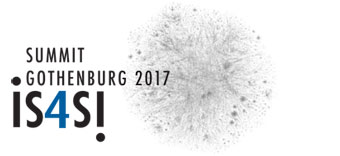Workshop: Habits and Rituals
Habits and rituals play a fundamental role in human life and are worthy to be considered also because they represent a form of embodied knowledge. They have been considered mostly by disciplines like anthropology, sociology and psychology. Philosophy as well offers interesting analyses from different perspectives, from Aristotle to Bourdieu (Sparrow and Hutchinson). Aristotle relates habits to virtues, while Peircean habits connect to the life of symbols. Of all human belief systems and practices, religions are strongest connected to habits and rituals in form of prayers, meditations, sacrifices, sermons, services, trances, initiation rites and more. Religious practices of Christianity, Islam, Hinduism, Buddhism or folk religions engage about 84% of the world’s population. Habits and rituals offer a common ground that can help to stimulate the discussion among different religions.
Latin presents two meanings for the English word “habit”. The first is Habitus, that entails a deliberate disposition to act. The second is Consuetudo, that implies the constant repetition of an event or behavior without deliberation.
Starting from these two meanings of the term habit and their relationship with the notion of “ritual”, we invite contributions on the following topics in comparison with contemporary trans-disciplinary and trans-cultural debate:
The traditional sense of habit (Habitus) that is introduced by Aristotle to characterize the notion of “virtue”. Virtue is a habit as disposition to face good or bad emotions and tendencies. Aquinas inherit the Aristotelian view and maintains that habit is not potency (i.e. a capacity) in that it makes us able or unable to do good or wrong. This notion of habit is defined also by Dewey who thinks that it is a human activity that is influenced by previous activity, namely it is acquired. It includes a certain order and a certain system of minor elements of action. It is a dynamic disposition that is operative in a subordinate form even when it is not the dominant activity at a certain time (Human Nature and Conduct 1921).
The meaning of the term habit (Consuetudo), as constant repetition of an event or a behavior, due to a mechanism that can be physical, psychological, biological, social etc. Standardly, it is assumed that this mechanism mostly develop from the repetition of acts and behaviors, and so, in the case of human events, through training. Aristotle, conceived habit a species of mechanism that is analogous to natural mechanisms, and somehow guarantees the uniform repetition of facts, acts, or behavior by eliminating or reducing effort and fatigue and so by making them pleasant. Habit as repetition without reasoning is also exemplarily described by Pascal and Hume. Bergson uses this notion of habit to promote moral obligations as social habits to favor social life and order. Metaphysical interpretations of the notion of habit are offered by Main de Biran, Hegel and Ravaisson. In this case, we can observe a shift to religious views. According to Hegel, habit is the most essential thing to the existence of every spirituality of the individual subject. So the subject can exist as concrete subject, as ideality of the soul, namely the religious content can belong to himself (with his own soul). The metaphysical perspective of Ravaisson considers habit as a law of grace that has the important result to consider nature as spirit and spiritual activity, as it demonstrates that spirit can become nature and vice-versa.
The debate on rituals is very lively in contemporary thought, particularly by reference to performative uses of language (pragmatism and Habermas’ theory of communicative action) and embodied cognition (Schilbrack et al). The disruptive cultural change caused by the process of digitalization invites for discussion of induced changes in habits and practices. There are interesting issues from the perspectives of:
- Pragmatic theory of knowledge (Rorty, Dewey, Peirce, James, Santajana, Whitehead)
- Post-Wittgensteinean philosophy (Winch, Lerner, Austin, Searle)
- Existentialism (Heidegger, Sartre, Bernstein, Eliade)
- Genealogical approach (Foucault, Bordo)
- Phenomenology (Merlau-Ponty, Dreyfus, Cross)
- Cognitive science and neuroscience (Clark, Van Gelden, Varela, Frankiel, Johnson, Graybiel)
- Feminist epistemology (Grosz, McGuire, Butler among others)
- Comparative philosophy (Sullivan, Kasulis, Law, Coakley, Clooney, Yasuo, Nagatomo).
Invited Speakers:
Lorenzo Magnani, University of Pavia, Italy
Søren Brier, CBS – Copenhagen Business School, Copenhagen, Denmark
Robert Lowe, University of Skövde and Gothenburg University, Sweden
Erik Billing, University of Skövde, Sweden
Organizer:
Raffaela Giovagnoli, Pontifical Lateran University, Rome, Italy



